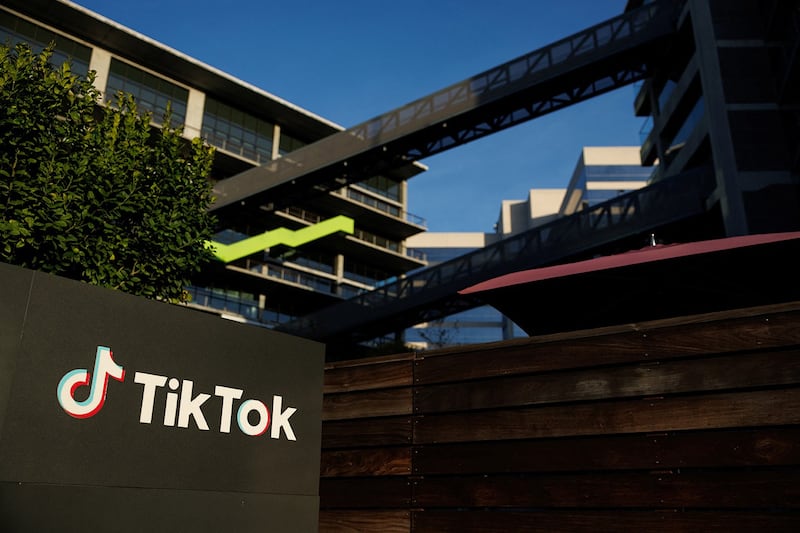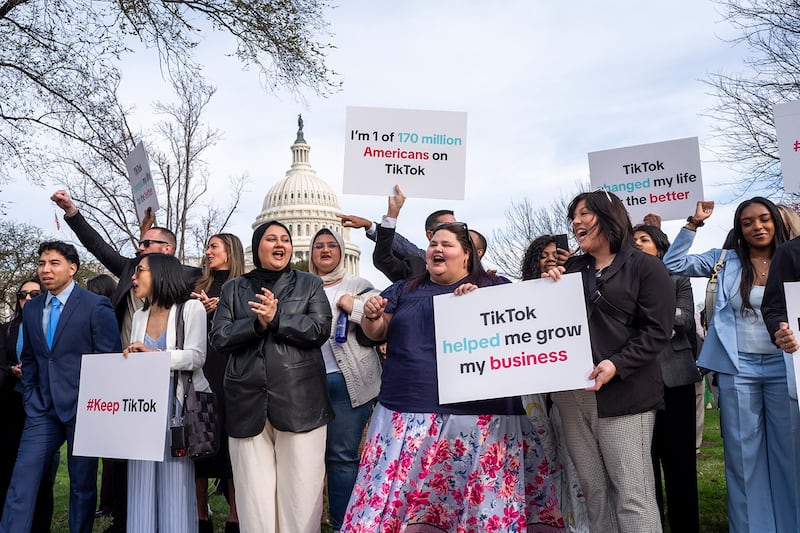The U.S. House of Representatives on Wednesday passed new legislation that could force TikTok's Chinese parent company to divest in the social media app to prevent it being banned in America.
Lawmakers backing the new bill say that forcing ByteDance to sell its controlling stake in the app, which has 170 million monthly American users, is the only way to ensure Beijing cannot use it for propaganda.
TikTok, though, has denied any interference from Beijing.
The legislation still needs to pass the Senate, but U.S. President Joe Biden last week said he will sign it into law if it does land on his desk. A similar bill was last year championed by a bipartisan group of senators, suggesting that it could face little resistance in that chamber.
The bill passed the House in a 352-65 vote, less than a week after it was introduced and was approved by the House Energy and Commerce Committee in a 50-0 vote. The fast-tracking meant the bill needed a two-thirds majority to pass, which it easily achieved.

Beijing has long denied interfering in TikTok’s operations and has in turn accused the lawmakers backing the legislation of being motivated primarily by anti-China paranoia and protectionism.
There was no evidence TikTok’s Chinese ownership was a threat to U.S. national security and that it would “come back to bite the United States” by damaging the country’s reputation, Chinese Foreign Ministry spokesman Wang Wenbin said at a press briefing.
“This kind of bullying behavior that cannot win in fair competition disrupts companies' normal business activity, damages the confidence of international investors in the investment environment, and damages the normal international economic and trade order,” Wang said.
Senate hurdles
In a statement, TikTok called the bill’s fast passage the product of a “secret” process and said it was “jammed through” the House.
“We are hopeful that the Senate will consider the facts, listen to their constituents, and realize the impact on the economy, 7 million small businesses, and 170 million Americans who use our service,” it said.
Senate Majority Leader Chuck Schumer said his chamber would consider the bill in due time, while Senate Commerce Committee Chair Sen. Maria Cantwell, a Democrat from Washington state, said she wants to ensure any bill signed into law “could hold up in court.”
But the legislation already has some high-profile backers.
Two of the advocates of last year’s similar Senate bill – Sen. Mark Warner, a Democrat from Virginia who also serves as chair of the Senate Intelligence Committee, and Sen. Marco Rubio, a Republican from Florida – said they “look forward to working together to get this bill passed through the Senate and signed into law.”

Rep. Mike Gallagher, a Republican from Wisconsin who led the bill in the House, has said Chinese ownership of the app, which is the fourth-most download on Apple and Google’s app stores, is akin to a Soviet-run company owning the New York Times in the 1960s.
Gallagher and other lawmakers note TikTok is legally required to expose American user data to Beijing upon request, and say it could be forced to alter its algorithms to promote Chinese propaganda.
“The Chinese Communist Party, and its leader Xi Jinping, have their hands deep in the inner workings of the company with devastating consequences for our personal freedoms,” he said last week.
That analysis has been mirrored by FBI Director Christopher Wray and other leaders of U.S. intelligence agencies, who say the app's widespread use means it could be used to distribute misinformation to millions of Americans and could even sway election results.
Edited by Malcolm Foster.
